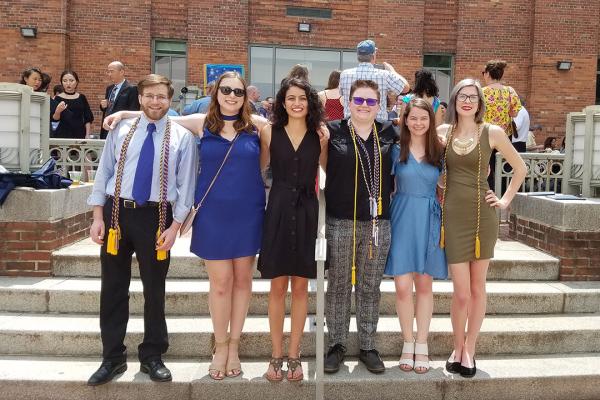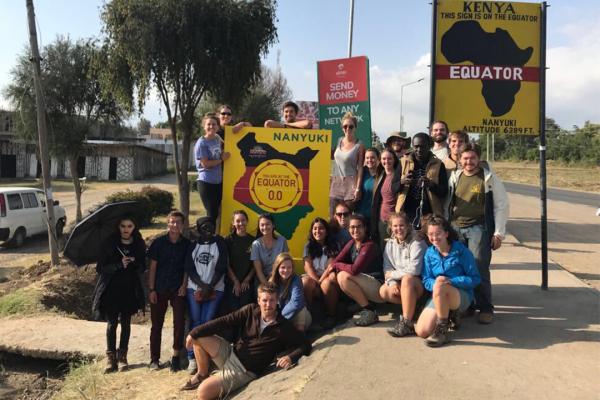About
With its commitment to the study of human difference and diversity — in all of its manifestations — the GW Department of Anthropology prepares students through coursework and unique learning opportunities to be change-makers in a multicultural and ever-evolving world. Established in 1892, the department is ideally located just a few blocks from the world-renowned Smithsonian National Museum of Natural History, the National Parks Service and numerous nonprofits and think tanks.
We are a center for internationally published scholarly research, boasting a faculty renowned for their expertise in the discipline's core focus areas. And our Center for the Advanced Study of Human Paleobiology and the National Chimpanzee Brain Resource are addressing new questions relating to human evolution. We are also home to the GW Institute for Ethnographic Research and the top-ranked Anthropological Quarterly journal, and are collaborating on a number of nationally recognized research projects.
Our Mission
The Anthropology Department is committed to integrating the humanistic and scientific perspectives of our discipline while pursuing advanced research of the highest quality.
We believe that:
- Research should be rigorous, creative and intrinsically connected to our activity as teachers.
- Faculty teaching and research activities should resonate with and complement each other.
- Our undergraduate and graduate students deserve outstanding classroom and practice-based training in the four core fields of anthropology: archaeology, biological anthropology, sociocultural anthropology and linguistic anthropology.
- A GW degree in anthropology should signal that the holder is experienced in synthesizing diverse kinds of data about human beings, a skill increasingly valued in a variety of professions as well as in academic settings.
We encourage team-teaching and experimentation with new teaching methods and technologies because these approaches feed back directly into cutting-edge research. Similarly, we eagerly seek out professional collaboration within and beyond the university in order to create the kind of vibrant intellectual community that stands at the heart of any great research institution. We will continue to place our knowledge at the service of the local, national and international communities to support humanistic values and human rights.






